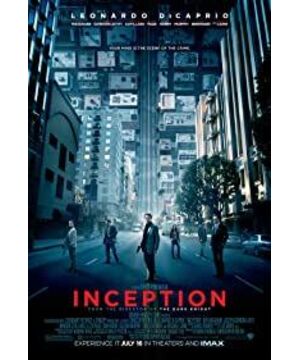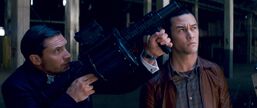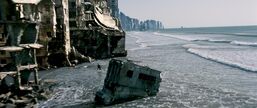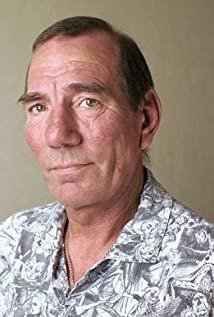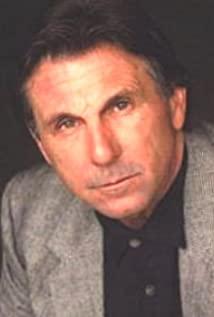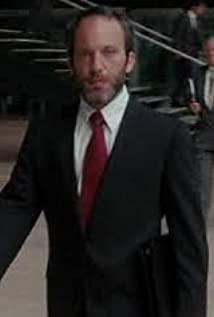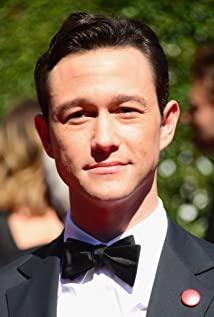-Borges "Circular Ruins"
"Inception" will not be released in mainland China until September 2, but the basic plot has already been revealed. In 1988, fans outside the country who had seen the whole picture earlier were excited to discuss the details, and some set the party to see the unpredictable mathematical principles from it, as if it was a repeat of the "Sun Also Rises". Over-interpreting the craze. While the global box office and word-of-mouth were soaring, someone suddenly pointed out that the inspiration of "Inception" about the intertwining of reality and dreams seemed to come from the Japanese animation director Jin Min's "Red Pepper", so everyone began to look for "Nolan Xiang Jinmin" with excitement. Tribute" evidence. At such a lively moment, the news of Jin Min's death from cancer suddenly came. At only 46 years old, he only had time to show his talents in five cartoons. He left with regrets before completing our long-awaited new film "Dream Machine". Netizens said in their mourning: "Dreammakers will return to eternal dreams."
In fact, the theme of "Dreamland and Reality" has never lacked explorers in both literary and film circles: from Zhuang Zhou's Dream Butterfly, to Borges' "Circular Ruins", to the horror science fiction film "Alternative Dimensional Hacker" In the words of Linklater, the cartoon "Waking Life", to the profitable "The Matrix" trilogy and its animated version, all are based on this topic. If you extend a little to doubt about the existence of reality, then more works can be included: "Trumen's World", "Vanilla Sky", "Sixth Sense", Leonardo's last work "The Closed Island", David Lynch’s early "Mulholland Road", even the AVG masterpiece produced by KID-"Never 7" and "Ever 17" in the Infinity series are no exception, not to mention the original philosophical introductory guide. "Sophie's World"-the sudden turn of the second half has subverted many young people's worldviews. What's amazing is that once this topic that has been talked about as one of the fundamental issues of philosophy has entered the space of literature, video, and even games, it can always bring people an unprecedented sense of freshness. With Nolan's consistent tangled narrative style and the philosophical implications behind his works, it is not unexpected to march into this theme in strides, and it is not necessarily a tribute to the former.
As early as in "The Meditations on First Philosophy," Descartes expressed his inner entanglement through the narrator: Since the Creator is omnipotent, he can naturally create all possible illusions for us. "Perhaps there is no sky, no earth, no extension of all things, no shape, no size, no place, but he can make me think that everything exists, just like this...extremely powerful , The vicious and cunning devil uses all his energy to deceive me. I should think that the sky, air, land, color, shape, sound, all surface things are just dream illusions designed by him to trap my judgment "Even if in reality we think that what we see, hear, feel, and think are extremely real, we must not forget that we were deceived by the same thoughts in our sleep; people who are immersed in dreams cannot realize the unreality. From physical perception, empirical knowledge to logical thinking, it is possible to be deceived by the devil. As Cobb, the protagonist of "Inception" said: "Only when you wake up do you realize that something is wrong." Therefore, Descartes wrote The narrator judged this: "When I thought about this issue more carefully, I clearly saw that there was no reliable sign to distinguish between being awake and asleep. So I started to feel dizzy, and this feeling It deepens the doubt that I might be in a dream." Descartes, who was caught in endless doubts, finally found that the only unsuspecting object was the self who was doubting himself. So after he bombarded reality nervously, Gives the answer "I think, therefore I am". However, even if the existence of the "doubtful self" is proved, how can it be proved that everything that the self perceives is real?
From the relationship between dreams and reality, it can also extend to doubts about memory. When Russell rebutted the creation theory, if God created everything and faked the traces of evolution, then "the time of creation can be set at any point. We may all existed five minutes ago, as long as we have the creation. Memories, wearing socks with holes and long hair that needs to be managed. So although this is logically possible, no one believes it." In fact, this seemingly absurd "logically logical" Possibly" is also being chewed and thought by more and more people and manifested in various forms. Nolan's work "Fragments of Memory" ten years ago involved the distortion and falsification of memories.
Perhaps closer to the film’s skepticism is the “brain in a tank” hypothetical experiment, which was proposed by the philosopher Hilary Putnam in the book "Reason, Reality and History". It sounds a bit like science fiction. The taste of the novel: A man was operated on by an evil scientist. The brain was cut off and put into a tank filled with nutrient solution. The nerve endings of the brain were connected to a computer; the computer sent information to the brain according to the program and stimulated a series of completeness. Real illusions and even memories can be input and eliminated. His feelings, movements, memories, and thoughts are all computer codes, but he doesn't know anything about it; he may even read the same paragraph in the hallucinations: "A man was operated on by an evil scientist..." We can even generalize that the evil scientist himself is also the brain in the tank. All human beings are the brain in the tank. Human beings share a collective illusion. The huge tank is controlled by machines, and everything in the world has never been true. occur.
So, how can we know if we are the brain in the tank?
Putnam himself gave a proof from logic and semantics that "brain in a tank" is a self-refuting proposition, because if we really are brains in a tank, then when we think of or say "brain in a tank" In this concept, the "tank" and "brain" we are referring to are only illusions generated by computer code stimulation, rather than absolutely real things. After all, the brain in the tank can never recognize real things; however, we are The real brain in the tank is not the imaginary brain in the tank, so when we say "we are the brain in the tank", this proposition must be false. To understand the open end of Inception with this logic, there is only one possibility left, that is, when Cobb returns to reality, the top will fall.
The problem is that Putnam’s own rebuttal itself has also received countless rebuttals. The most understandable one is: only the brain that has been in the tank is so stupid that it does not know what the real tank and brain are. If you live for half a lifetime How can you not know the true meaning of the tank and brain just after being thrown into the tank? Is this kind of brain qualified to judge that it is a "brain in a tank"? For the characters in "Inception>, everyone has woken up before dreaming, so they clearly know the true meaning of "dream", so they can naturally question "Am I in a dream". In addition, there are countless people who attack Putnam thesis from other logical nodes. Putnam's original intention was to refute the hypothesis of "brain in a tank", but because his refutation seemed too much like a word game to most people, it was the target he set up that was widely spread and far-reaching in the end.
In "Inception", Nolan equips the characters with "totems" to determine whether they are in a dream, and this has become an important clue to the film. In "Ring Ruins", Borges’s wizards and teenagers are not harmed by fire. This is the only basis for judging that they are phantoms: "The flames did not consume his flesh, but did not burn or burn the ground. Soothing him, drowning him. He knows with relief, ashamed, and fear that he himself is also a phantom, the phantom of another person’s dream." Outside of art, in the world that we consider to be real, Descartes, Neither Russell nor Putnam gave specific methods for judging reality and illusion. When you walk out of the theater, or when you close the page, how do you know that the sunlight hitting your face is not just a pulse of electrons?
View more about Inception reviews


